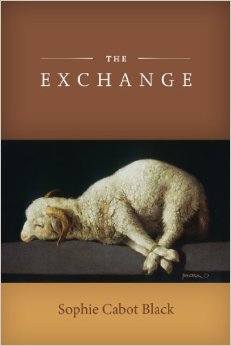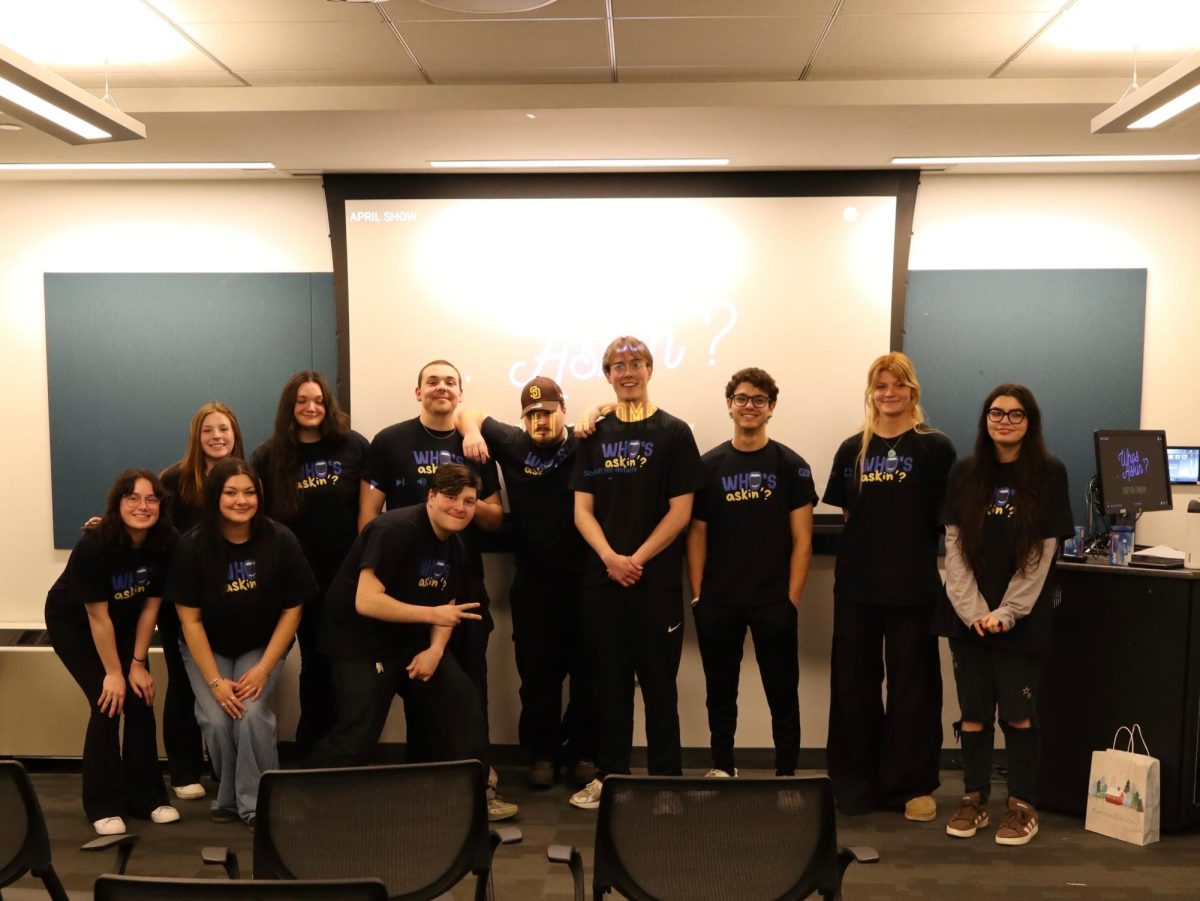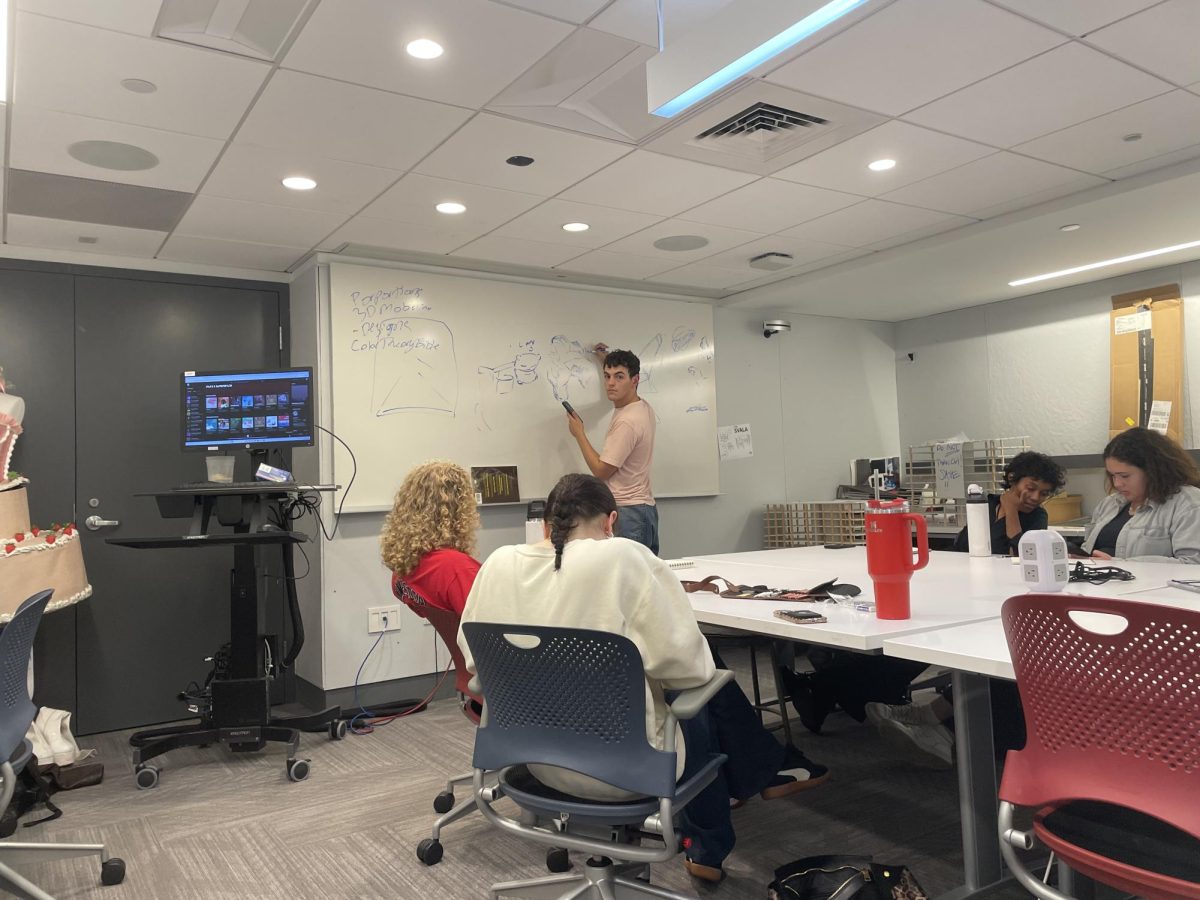Poets Sophie Cabot Black and Greg Delanty visited Suffolk’s Poetry Center to share their thoughts on friends and family, love and death, and past and present.
The center was packed full of students and professors alike who came to listen to the writers’ works. Through their poems, the two writers both touched on themes of death and grieving but with very different styles and contexts.
Black’s poems, from her newest book The Exchange, served as a call and response to many poems in the book Stupid Hope written by her friend Jason Shinder who was dying.
Her poems are also heavily influenced by the economic crisis of 2008, as she links the ideas of failing banks to her friend’s deteriorating health.
“When you put a book together, it goes in a totally different direction than you thought,” Black said.
She describes the themes of her work as “mostly about God and love and eventually they fall on a cell phone because that’s the way the world seems to be going these days.”
With heartbreaking detail the first few poems Black read, with titles like “Already Broken,” “Diagnosis,” “Biopsy,” and “Chemotherapy,” described her friend’s condition and the emotions that came along with the doctors visits and treatments.

Capturing both the fear and need for comfort of the patient and herself, Black wrote, “Picking out stars as the needle enters the vein / Looking for constellations something we can name.”
Connected through images of walking in and out of rooms and themes of tragedy and endings, Black’s next set of poems comment on the recession. “Private Equity” and “Somewhere in New Jersey is the Center” both use business management and budgeting woes as a kind of metaphor for the declining state of society and Black’s emotions after the loss of her friend.
“To end up where we started again / And to look like we’ve gained,” Black wrote of shady bank practices, but was surely writing of more than just the economy.
The slight sarcasm and subtle criticisms of the business world are not lost underneath Black’s serious emotional tones though as she states, “This, the place that money built / So that money can build.”
Black’s tone throughout her reading was serious, almost stern at times, as she spoke with a sense of true sorrow.
Her last poem of the night, “Pay Attention,” seemed to reveal all the hidden in between the lines guilt of other poems and get at the heart of her sadness as she wrote, “I took care of myself much too often / Thinking like I took care of someone else.”
The Irish poet Greg Delanty also wrote of grieving over the death of a friend but had the audience laughing along with his commentary in between poems. Delanty is fascinated by words and language so he plays on unusual terms in his writings.
Delanty’s father was a compositor who worked to lay type for old printing presses. In his poem dedicated to his father and mentor, Delanty uses the lingo of the job which is unrecognizable to the modern day listener who reads on tablets and smartphones, not off hand printed pages.
“Printer’s language is almost gone now,” Delanty remarked, “And well, I’m very jolly tonight, but someday we’ll all be gone.”
Many of his poems also deal with the struggles of immigrants as they adjust to life in America. Delanty has been widely praised as the voice of a generation of Irish immigrants by capturing their feelings in his poetry. His poems can also be quite critical of America and integration of cultures too.
After reading one such poem, Delanty used his grinning charm to get the audience back to laughter: “I am a U.S. citizen now, I can say this. I’m authentic, except for my accent which I practice every morning.”
Delanty also spoke about his friend and recently deceased famous Irish poet Seamus Heaney. In Delanty’s upcoming book, The Greek Anthology, Book XVII, is written in the style of the ancient Greek Anthology that ends with Book XVI.
He dedicates poems to other famous poets, giving them whimsical Greek names, like Ferriuous (David Ferry, a distinguished scholar at Suffolk) and Heaniuous for the late poet, as Heaney once dubbed Delanty ‘Gregory of Corkuous.’
The poems of this book revolve around the themes and stories of famous Greek mythology but also come back to Delanty’s own experiences. Poems like “Eventually,” “White Out,” and “Patient” wrestle with the idea of death and the suffering of grief. In a particularly poignant poem, “Patient,” Delanty closes with the line, “Wishing it didn’t take all this dying to love life.”
Suffolk’s Poetry Center is co-directed by English professors George Kalogeris, Fred Marchant, and Jenny Barber. It is located on the third floor of the library and its events are free and open to the public.



















